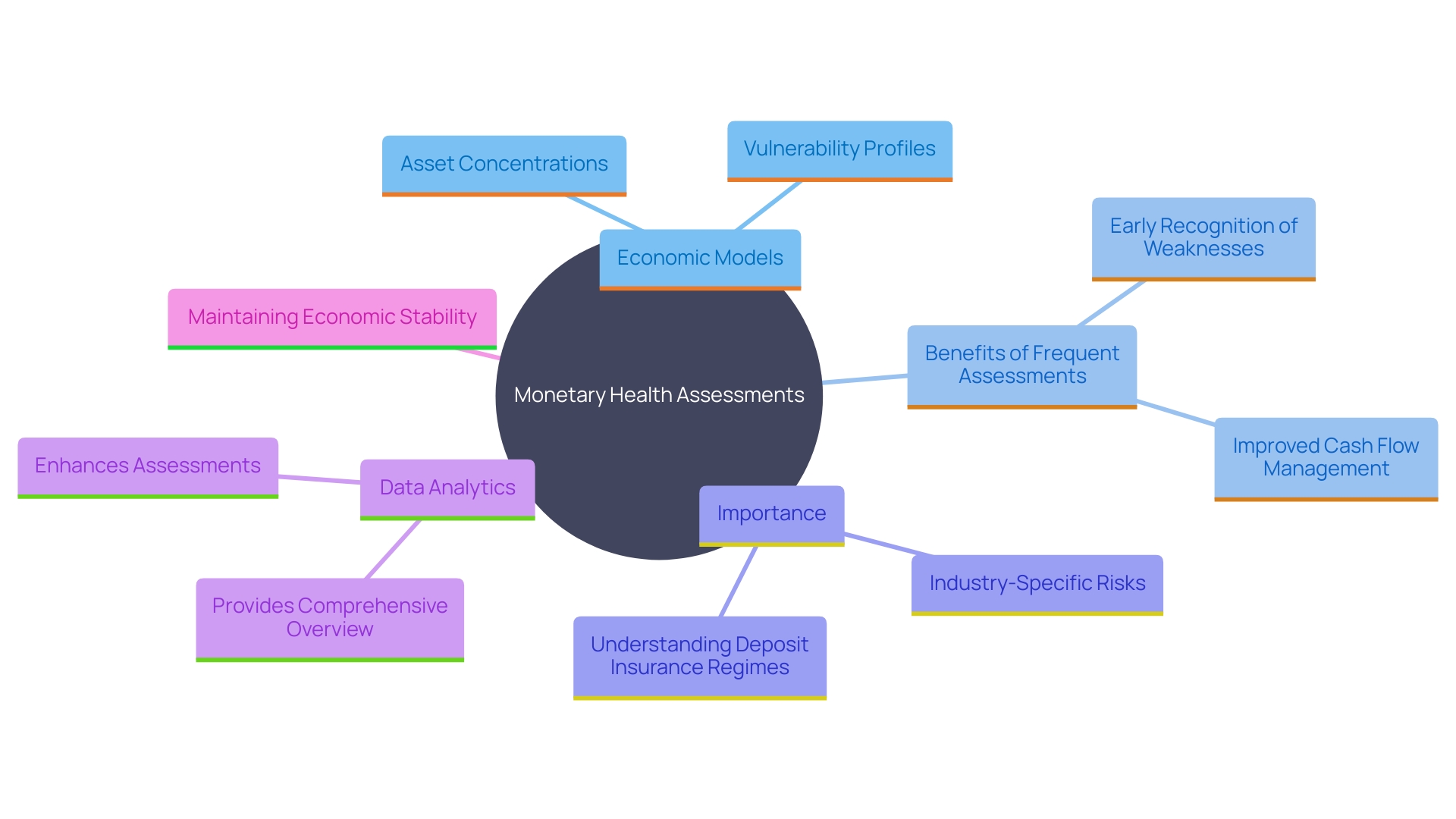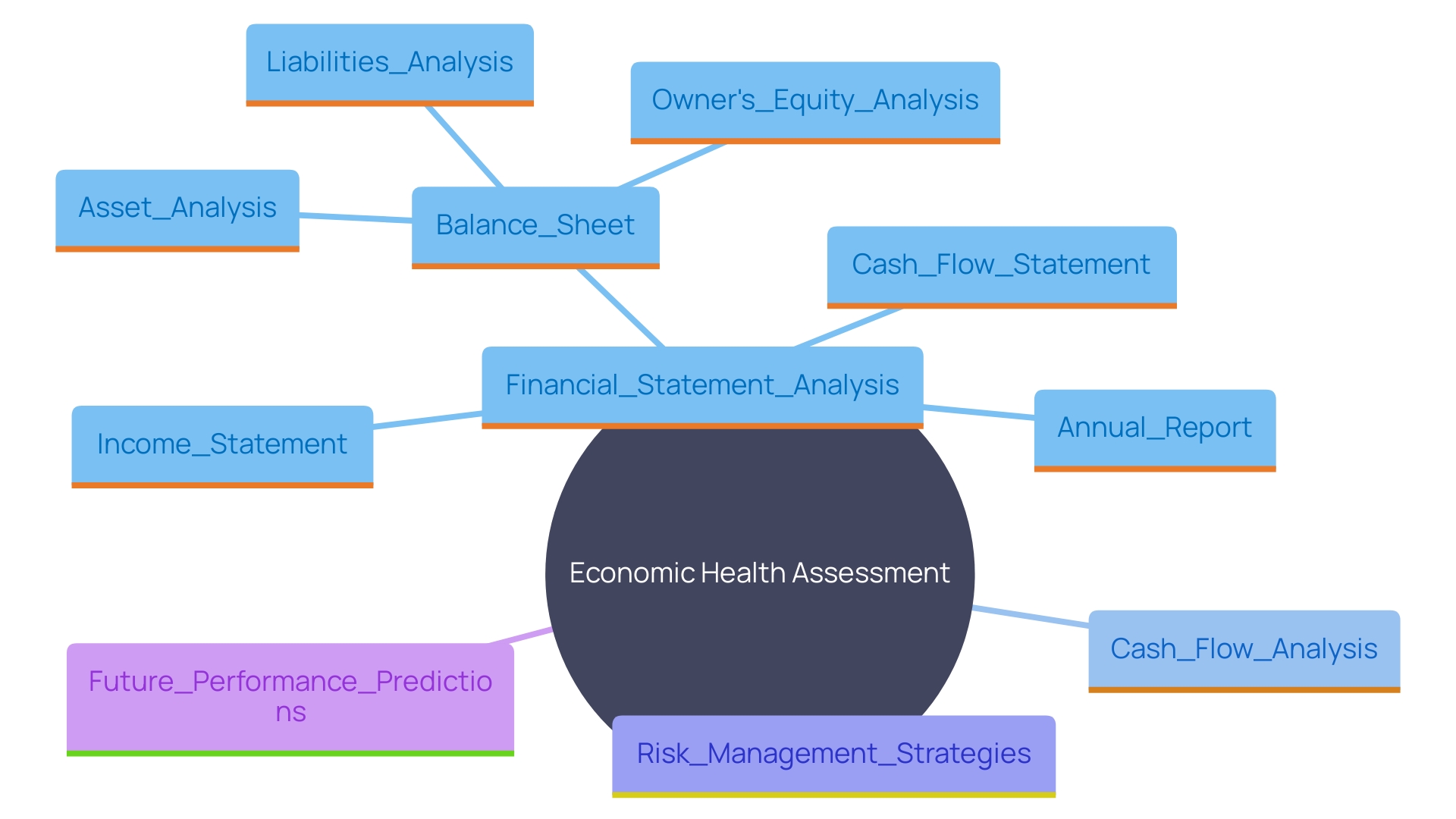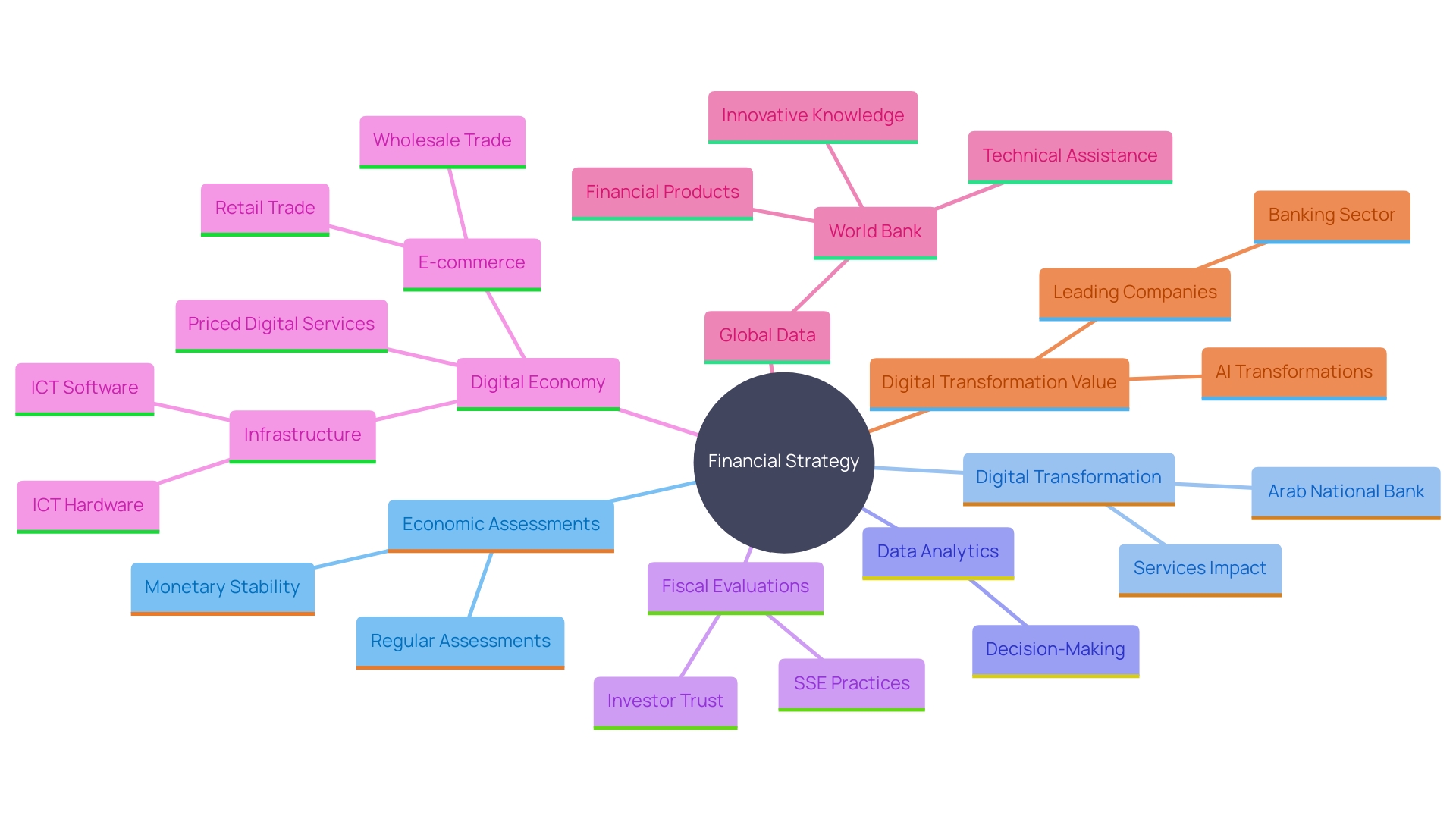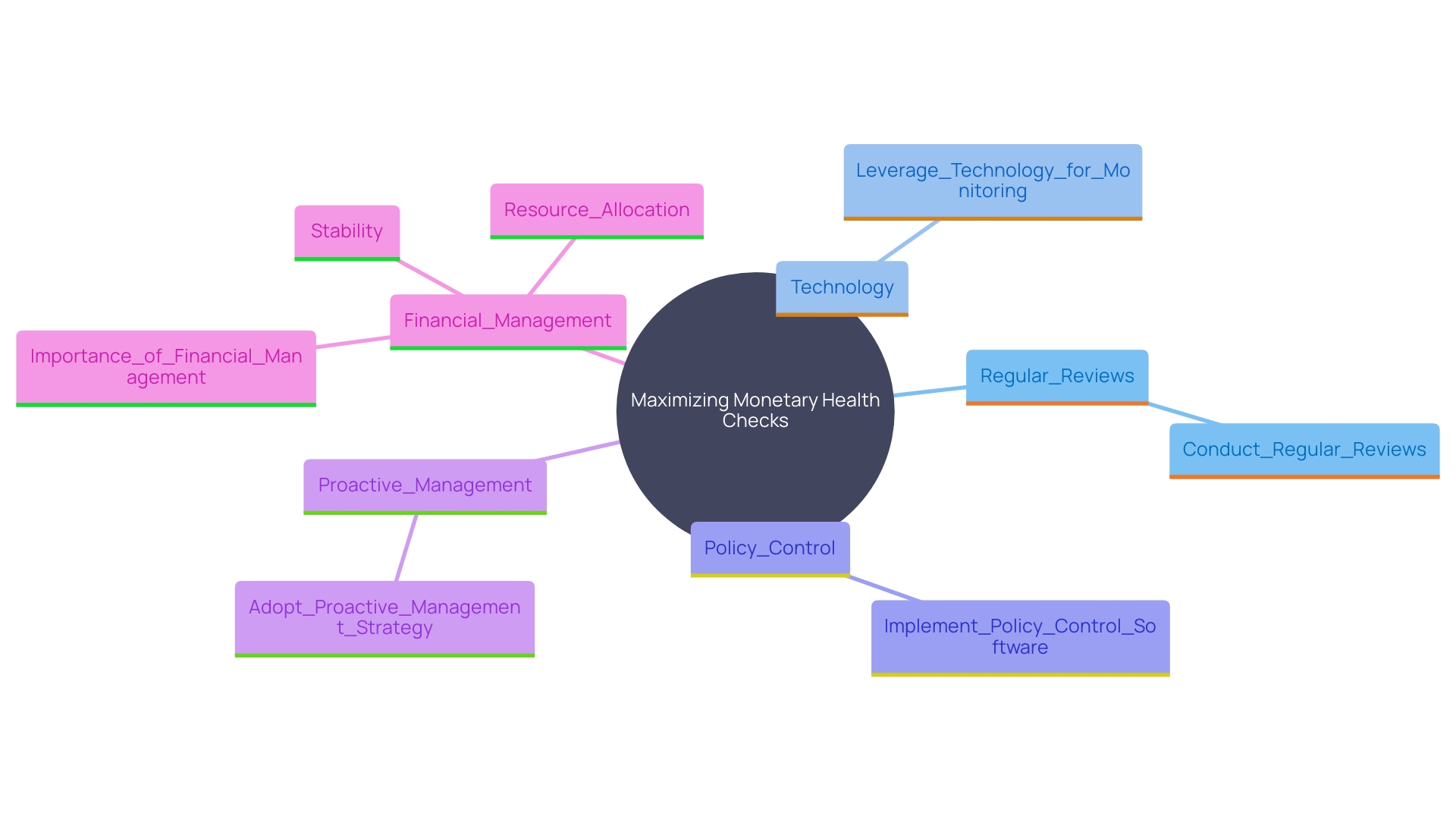Introduction
In an era where financial agility and precision are paramount, conducting a thorough financial health check has never been more critical for businesses. This essential process offers a panoramic view of a company's financial standing, revealing potential vulnerabilities and providing actionable insights into cash flow management and risk mitigation. By regularly scrutinizing financial models, asset concentrations, and risk profiles, companies can identify weaknesses early and implement timely interventions.
Furthermore, leveraging advanced data analytics transforms vast amounts of data into strategic insights, ensuring that organizations stay ahead in a complex and data-driven landscape. This article delves into the key components, benefits, and best practices of financial health checks, offering a robust framework for CFOs aiming to fortify their company's financial health and ensure sustained growth.
Why Conduct a Financial Health Check?
Performing a monetary health assessment is vital for companies seeking to uphold economic stability and operational effectiveness. This process provides a thorough perspective on the company's economic models, asset concentrations, and vulnerability profiles, enabling a detailed evaluation of possible weaknesses. Frequent assessments not only assist in recognizing weaknesses early but also offer practical insights into cash flow management and strategies for minimizing potential issues. For instance, understanding the intricacies of deposit insurance regimes and the implications of industry-specific risks can guide timely interventions, thus preventing more significant economic issues down the line. Utilizing data analytics can further improve these assessments, transforming extensive quantities of data into practical insights that keep the company ahead in an increasingly intricate and data-oriented environment.

Key Components of a Financial Health Check
Carrying out a comprehensive economic health assessment includes several essential elements. These consist of examining monetary reports, analyzing cash movements, evaluating risk oversight techniques, and predicting future outcomes.
Financial statement analysis, a cornerstone of this process, encompasses a detailed examination of a company's balance sheet, income statement, cash flow statement, and annual report. This analysis offers a thorough perspective on the organization's operational effectiveness, asset oversight, and possible liquidity challenges. For instance, asset analysis focuses on cash, inventory, and property, plant, and equipment (PP&E), which are pivotal in predicting future growth. Additionally, examining long-term and short-term liabilities helps identify any impending liquidity problems or debt obligations the organization might struggle to meet.
Examining cash flows is another essential aspect, providing insights into the company's liquidity and economic flexibility. It reveals how effectively the organization generates cash to meet its debt obligations and operational expenses. This step is particularly important for maintaining a healthy cash flow, which is essential for sustaining day-to-day operations and supporting long-term investments.
Management strategies for uncertainties are equally essential, as they aid in identifying, evaluating, and reducing potential monetary threats. In today's dynamic economic environment, leveraging advanced technologies such as artificial intelligence can streamline these practices, offering innovative solutions for risk assessment and mitigation.
Lastly, predicting future performance involves using historical data and current economic trends to anticipate the organization's future fiscal condition. This forward-looking approach enables organizations to make informed strategic decisions, ensuring sustained growth and stability.
By combining these elements, a monetary assessment offers a comprehensive perspective of an entity's economic environment, facilitating improved decision-making and strategic planning.

Benefits of Regular Financial Health Checks
Carrying out regular economic assessments greatly strengthens monetary stability by identifying inefficiencies and allowing prompt corrective measures. For example, Arab National Bank (anb) leveraged a comprehensive evaluation to pivot its services, embracing a digital transformation strategy that propelled its growth and operational efficiency. These evaluations provide data-driven insights crucial for strategic decision-making, allowing businesses to allocate resources more effectively. The integration of data analytics, a cornerstone of informed monetary decision-making, enhances this process by turning vast amounts of data into actionable insights. Additionally, regular fiscal evaluations enhance investor trust, highlighting a proactive strategy for managing finances. SSE, for example, has established science-based sustainability goals and conducts yearly independent evaluations, strengthening stakeholder confidence through clear and meticulous monetary practices.

Best Practices for Conducting Financial Health Checks
To maximize the benefits of monetary health checks, it's crucial to incorporate best practices such as conducting regular reviews and updates. Leveraging technology is essential for monitoring key financial indicators and ensuring real-time data access. For instance, implementing policy control software can centralize and automate policy-related communications and procedures, making it easier to keep up with regulatory expectations. Furthermore, embracing a proactive management strategy for potential issues is essential. Contemporary managers of uncertainties encounter a varied array of emerging challenges, from artificial intelligence to climate change, necessitating a company-wide strategy. They need to analyze these risks holistically to create optimal risk financing programs. As Mitt Mehta from SENTA Partners emphasizes, financial management and planning are fundamental for efficient resource allocation and financial stability, laying a strong foundation for sound financial management.

Conclusion
Regular financial health checks are indispensable for businesses striving for stability and growth in today's complex financial landscape. By systematically reviewing financial statements, analyzing cash flows, and assessing risk management practices, organizations can uncover potential vulnerabilities and implement effective strategies for improvement. This proactive approach not only aids in identifying weaknesses but also empowers companies to make informed decisions that enhance operational efficiency.
The integration of advanced data analytics further amplifies the benefits of these evaluations. By transforming extensive data into actionable insights, businesses can allocate resources more effectively and respond swiftly to emerging challenges. This is exemplified by organizations like Arab National Bank, which embraced digital transformation following a comprehensive financial evaluation, showcasing the tangible benefits of such initiatives.
Incorporating best practices, such as leveraging technology for real-time monitoring and maintaining a proactive risk management stance, is essential for maximizing the value of financial health checks. By fostering a culture of regular assessment and adaptation, organizations can not only bolster investor confidence but also ensure long-term sustainability. Ultimately, a robust financial health check framework serves as a cornerstone for sound financial management, driving sustained growth and operational excellence.




